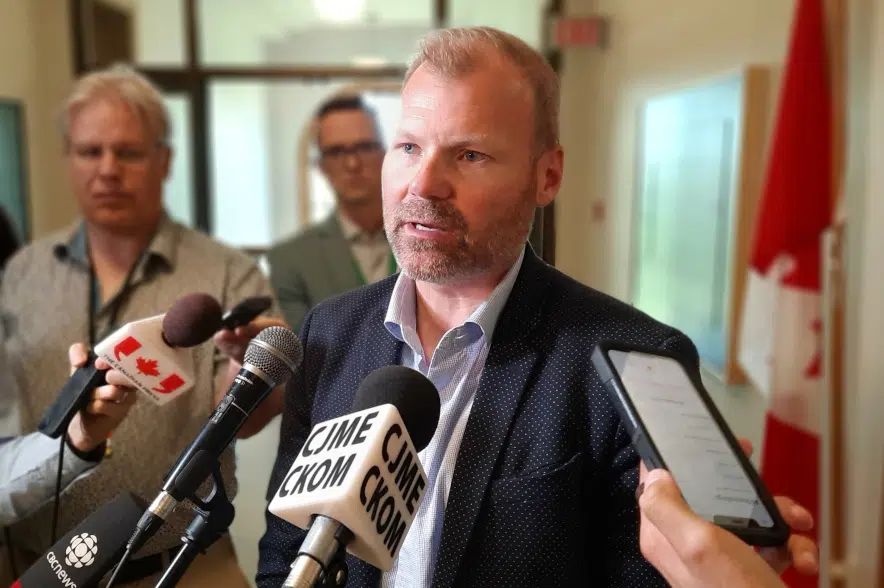Saskatchewan is updating its policies on students changing names and pronouns in order to ensure parents provide consent.
The announcement from Education Minister Dustin Duncan said as of Tuesday, schools must now seek permission from a parent or guardian “when changing the preferred name and pronouns used by students under the age of 16 in the school.”
The updated policy also requires that parents or guardians be informed about the school’s sexual health curriculum and given the option to decide whether or not their child will participate.
The final change announced Tuesday requires school boards to “immediately pause involvement” with third-party groups connected to sexual health education “as the ministry undertakes a review of educational resources to ensure alignment with curriculum outcomes.”
According to the Ministry of Education, only teachers will present sexual education material in Saskatchewan classrooms going forward.
Sex education involving outside agencies has been an issue in the province recently. In June, Duncan suspended Planned Parenthood from making presentations in Saskatchewan schools after sexually explicit alphabet cards were left in a Lumsden high school after a presentation. The cards described – in great detail – various sexual acts and situations.
Two third-party groups were specifically named in the government’s statement on Tuesday: The ARC Foundation and the SOGI 1 2 3 Program.
According to its website, the ARC Foundation “creates and co-funds breakthrough collaboration models for reducing 2SLGBTQ+ discrimination in schools. ARC’s primary program is SOGI 1 2 3 which helps educators make schools inclusive and safe for students of all sexual orientations and gender identities through policies and procedures, guidance on creating inclusive environments and teaching resources.”
Duncan said Tuesday’s changes were made in response to issues raised by parents.
“Our government has heard the concerns raised by Saskatchewan parents about needing to be notified and included in their children’s education in these important areas,” Duncan said in a statement.
“We also determined that while all of Saskatchewan’s school divisions had policies dealing with these matters, those policies varied from one division to another, so it was important to standardize these policies and ensure consistency of parental inclusion, no matter where your child goes to school.”
Duncan said it’s “crucial” that parents and guardians are involved in important decisions around the education of their children.
“Schools will continue to ensure safe learning environments where all students feel included, protected and respected,” he said.
Duncan has spoken in favour of parental consent and involvement in education in the past, particularly when he supported a decision by Great Saskatoon Catholic Schools calling for school groups to avoid an LGBTQ-themed “Rainbow Tent” during trips to the city’s recent children’s festival.
The ministry noted that parental consent is not required if a student over age 16 wishes to change their name or pronouns.
Asked for a reaction to the announcement, the Saskatchewan Federation of Labour issued a terse one-sentence statement it attributed to president Lori Johb: “Outing children as part of a political gamble is violent and despicable.”
The Canadian Civil Liberties Association also weighed in, saying the new policy “violates the rights and dignity of 2SLGBTQIA+ young people” and will make it more dangerous to be an 2SLGBTQIA+ student in the province.
“We have seen all too often what happens when students are outed at home. Some unsupportive families have kicked their kids out of the house or resorted to physical violence,” Harini Sivalingam, the director of the CCLA’s equality program, said in a statement.
“Shredding the rights of students is repulsive. Implementing policy that could result in increased harm to vulnerable youth is disgraceful.”
The CCLA noted it would take legal measures to protect the students’ rights.
More to come.







